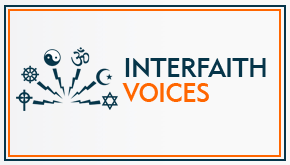Lessons from Fighting Ebola: Why EngagingFaith Leaders Creates Safer Communities
David Robinson spent three decades managing disasters for World Vision International, an evangelical Christian non-profit. He was on the ground in Sierra Leone during its worst Ebola outbreaks where he saw first-hand that cooperation between government health officers and local faith leaders can help contain infectious diseases. But it can only work if there is trust — trust in faith leaders and trust in vetted official sources of information. He explains how the lessons from fighting the Ebola virus in West Africa can help in the fight to contain the Novel COVID-19 virus.
Not an After Thought: HowInterfaith Faith Leaders are Part of the Plan
Montgomery County, Maryland has made representatives from two dozen local faith groups an integral part of its crisis response program. Mansfield Kaseman, the county’s interfaith community liaison describes how faith groups and county officials cooperate to support social cohesion. Their model has caught the attention countries around the world, interested in replicating their success.
A Big Tent and No Walls: Caring for the Least of These
Los Angeles’ First United Methodist Church’s founding mission was to minister to the “rowdy and incorrigible” in the City of Angels. Today, the small congregation is a “church without walls” that meets in a tent not far from the city’s notorious Skid Row. As the Covid-19 crisis intensifies, Rev. Mandy Sloan McDow describes how she and the church’s members protect the most vulnerable in their community. They are packaging hygiene kits for the homeless and making sure their seniors stay home. In the crisis, McDow says she returns to the New Testament stories of Jesus caring “for the least of these,” reminding us to see the person and not the disease.



